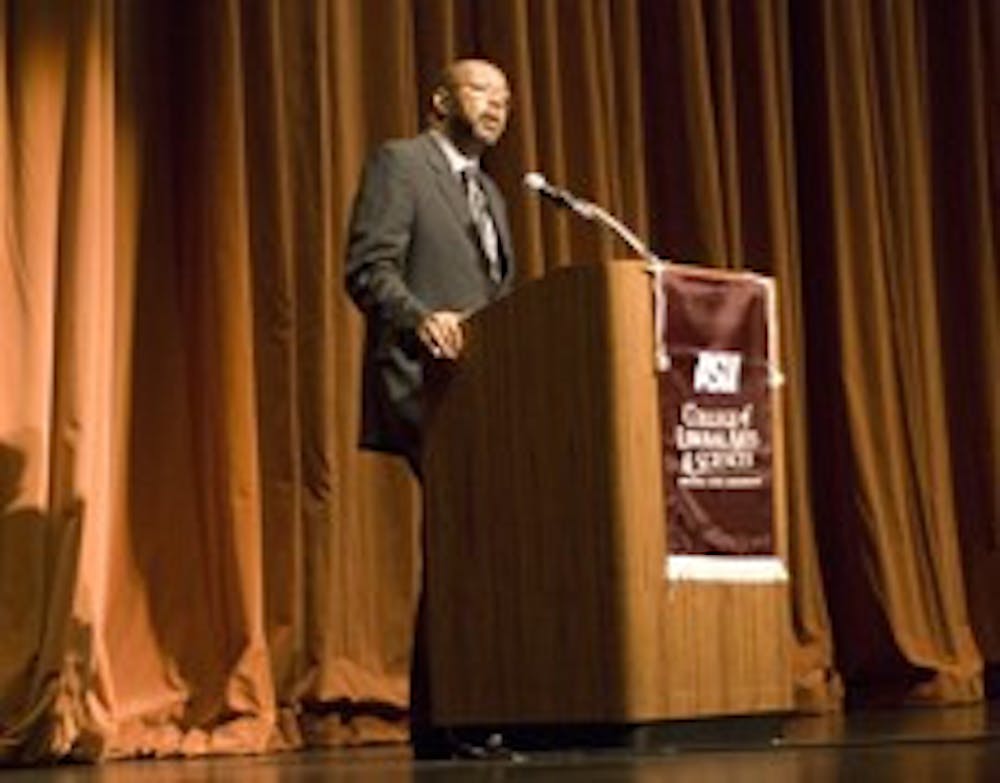Pulitzer Prize-winning columnist Leonard Pitts Jr. told a crowd of 1,500 Monday to remember America's history of racial animosity while warning them not to repeat it.
This year's 13th annual A. Wade Smith Memorial Lecture on Race Relations at Grady Gammage Auditorium, put on by the ASU College of Liberal Arts and Sciences, featured Pitts' speech, "Race, Politics and the Drama of Obama."
America, he said, is the kind of nation where Oprah Winfrey, a poor black girl from Mississippi, can become the richest woman in the country.
But it is also a nation where that same woman can be turned away from a dress shop because the owners think she's going to rob them, Pitts said.
The problem for Americans is not that we see each other in terms of race, Pitts said, but that race is all we see.
"For some of us [as Americans]," he said, "the African part will always be more important than the American part."
The presidential candidacy of Sen. Barack Obama, he said, is changing that.
If elected, Obama would be the first black president of the United States.
"By his very presence and prominence in this political season, Obama makes us have a discussion that we've been avoiding for 40 years," Pitts said.
Too often Americans try to transcend race, or be "colorblind," he said.
"If you look at Barack Obama and do not see a black man, that doesn't tell me you're colorblind, that tells me you're blind," Pitts said.
Allison Tucker, a design management sophomore, attended the lecture for extra credit in her ethnic studies class.
Although she is a supporter of presumptive Republican nominee Sen. John McCain of Arizona, she said she appreciated Pitts' comments on race and Obama's campaign.
"I thought he was well-versed," she said.
In his lecture, Pitts admonished the black community to not make false accusations of racism where none was intended.
"If everything is racism, then nothing is," he said. "The plain truth is, some black people can see a racial conspiracy in a phone book."
But it is more difficult for white people to understand black culture than vice versa, Pitts said, as black people live every day in a white world.
"That still does not mean that race is an impenetrable barrier," he said. "But race has this way of sucking the oxygen out of the room. Race has a way of seeming like it's the only thing that matters."
But what's great about America, Pitts said, is its ability for renewal, for redemption and for change, even with its ugly history in terms of race relations.
"[Americans] are grounded by this history, but not chained to it," he said.
Reach the reporter at: leigh.munsil@asu.edu.




